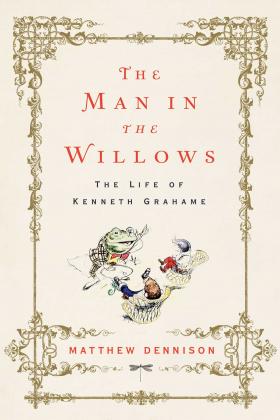
| Format | Hardcover |
| Publication Date | 02/05/19 |
| ISBN | 9781643130071 |
| Trim Size / Pages | 6 x 9 in / 352 |
A moving biography of Kenneth Grahame, author of the children's classic The Wind in the Willows, and of the vision of English pastoral life that inspired it.
During his regular days in London, Kenneth Grahame sat behind a mahogany desk as Secretary of the Bank of England; on weekends he retired to the house in the country that he shared with his fanciful wife, Elspeth, and their fragile son, Alistair, and took lengthy walks along the Thames in Berkshire, "tempted by the treasures of hedge and ditch; the rapt surprise of the first lords-and-ladies, the rustle of a field-mouse, the splash of a frog."
The result of these pastoral wanderings was his masterful creation of The Wind in the Willows, the enduring classic of children's literature; a cautionary tale for adult readers; a warning of the fragility of the English countryside; and an expression of fear at threatened social changes that, in the aftermath of the World War I, became a reality. Like its remarkable author, the book balances maverick tendencies with conservatism. Kenneth Grahame was an Edwardian pantheist whose work has a timeless appeal, an escapist whose withdrawal from reality took the form of time travel into his own past.
Matthew Dennison is the author of five critically acclaimed works of non-fiction, including Behind the Mask: The Life of Vita Sackville-West, a Book of the Year in The Times, Spectator, Independent and Observer. He is a contributor to Country Life and lives in the United Kingdom.
Buy it now in print: Amazon Barnes & Noble IndieBound
Buy it now in ebook: Amazon Barnes & Noble Apple Kobo
"Dennison’s account is sympathetic but honest, psychologically acute and insightful. It is, withal, a sad story but one that Dennison tells extremely well to his and Grahame’s credit." Booklist
"Matthew Dennison’s short, gripping and consistently surprising biography of Kenneth Grahame ably explains how a stuffy bank clerk produced arguably the greatest children’s book ever written, The Wind in the Willows. Grahame’s was a life of tragedy from its beginning and a consequent retreat into private fantasy proved both his imaginative salvation and, thanks to his unfortunate son, ‘Mouse,’ the greatest loss of all." The Guardian (UK)
"This sympathetic study will attract biography lovers and, of course, fans of Grahame’s enduring classic." Library Journal